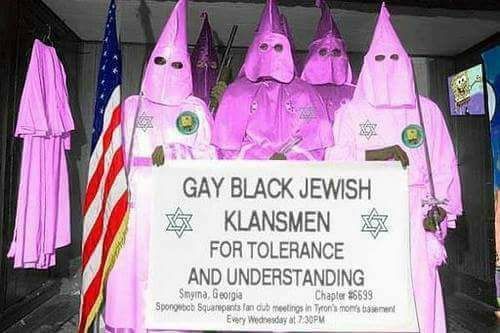Conversations with a Fundamentalist Christian
Part 1: The Wall of Faith

Introduction
Trying to have a meaningful discussion with a fundamentalist Christian often feels like walking into a one-way conversation. You may approach the discussion with logic, evidence, or even personal experience, but the moment you start probing deeper, the answer you hear most often is one word: faith. That word isn’t just an answer—it’s a conversation stopper.
For fundamentalists, “faith” doesn’t mean trust earned by experience or confidence in things observed. It means belief without evidence, belief in spite of evidence, and in some cases, belief against all reason. Once you encounter this brick wall, you realize the discussion isn’t really about discovery or dialogue at all. It’s about defending a fortress built on faith.
What Faith Means in Fundamentalism
At its core, faith is presented as a virtue. The Bible itself holds up faith as superior to sight, superior even to reason: “Now faith is confidence in what we hope for and assurance about what we do not see” (Hebrews 11:1, NIV). Fundamentalists take this literally. For them, the absence of evidence is not a problem—it’s the whole point.
This mindset reframes belief as something immune from the normal rules of conversation. In everyday life, we rely on evidence: in a courtroom, you need facts; in science, you need data; in business, you need proof of performance. But in fundamentalist faith, evidence is secondary—or worse, it’s portrayed as unnecessary or even dangerous. Doubt isn’t part of the process; it’s treated as sin.
This is what makes conversations with fundamentalists so difficult. If belief is anchored in the conviction that evidence doesn’t matter, then any attempt to appeal to reason will be dismissed outright.
Why Discussions Break Down
A healthy discussion requires at least one shared foundation: that evidence has value. If you and I both agree that facts matter, then even if we start with wildly different views, there’s room to meet in the middle. But when faith is placed above evidence, that common ground disappears.
You may bring up evolution, cosmology, or contradictions in scripture. The response? “I don’t need to explain it—I just believe.” You might point out the inconsistencies in biblical morality or the silence of God in the face of tragedy. The answer? “God works in mysterious ways. Who are we to question Him?”
These aren’t answers—they’re conversation enders. They serve as shields to protect belief from scrutiny. And that’s precisely the point: the wall of faith exists to keep the believer safe from doubt.
Over time, you come to realize that what’s being defended isn’t truth, but identity. For many fundamentalists, their religious faith isn’t just what they believe—it’s who they are. To question their belief is to threaten their very sense of self.
The Core Problem: Belief Over Evidence
Let’s be clear: the difficulty isn’t that fundamentalists are unintelligent. Many are smart, articulate, and passionate. The difficulty lies in the framework itself. Once you elevate belief above evidence, you’re no longer playing by the rules of reason. You’ve left the world of rational discourse and entered dogma.
This creates an asymmetry in the conversation. You’re appealing to logic, but they’re appealing to authority—specifically, divine authority. You ask for evidence, they respond with scripture. You question scripture, they respond with faith. It’s a closed loop, airtight and self-reinforcing.
That’s why so many discussions with fundamentalists feel like déjà vu. You could have the same debate a hundred times, and the outcome never changes. They’re not evaluating new information. They’re reaffirming the same belief.
Historical Context: Faith as Authority
This dynamic isn’t new. For centuries, faith was the dominant mode of explaining the world. Before the scientific revolution, people relied on religious authority to explain everything from plagues to planetary motion. If the church said the earth was the center of the universe, then it was unquestionable—until evidence finally forced a shift.
Galileo, for example, faced condemnation not because his telescope was wrong, but because it contradicted scripture. His evidence wasn’t the issue—faith was. That same mindset persists in fundamentalism today, where scripture is elevated above science, history, and experience.
What’s changed is that we now live in a world where evidence has proven itself as the most reliable way of understanding reality. Medicine works. Engineering works. Data works. Yet in religious fundamentalism, we still see an allegiance to belief that resists the very tools that have advanced human progress.
Common Dead Ends in Conversation
After enough exchanges with fundamentalists, you begin to notice a pattern of “conversation dead ends”—statements designed to stop thought rather than invite it. Here are some of the most common:
- “The Bible says so.” Scripture becomes the ultimate trump card. It doesn’t matter if the Bible contradicts itself, conflicts with reality, or has no external corroboration. For the fundamentalist, its authority is unquestionable.
- “You just have to believe.” This is perhaps the purest form of faith as a shield. It elevates belief itself above any need for justification.
- “God’s ways are higher than ours.” This stops moral discussions in their tracks. If divine command is unquestionable, then any critique of biblical morality is dismissed as human arrogance.
- “Without God, there is no morality.” This claim ignores the vast evidence of human cooperation, empathy, and ethical reasoning outside of religion. But for the fundamentalist, morality must be tethered to divine authority.
- “Doubt is from the devil.” This weaponizes fear against questioning. If doubt itself is sin, then even entertaining questions becomes dangerous.
Each of these responses highlights the same reality: the goal isn’t engagement. It’s insulation.
The Illusion of Dialogue
One of the hardest lessons in these conversations is realizing you’re not in a dialogue at all. A dialogue assumes both parties are open to new information. But for fundamentalists, the conclusion is already settled. Evidence is reinterpreted to fit belief, never the other way around.
This creates a kind of intellectual bad faith (pun intended). You may be investing effort in presenting facts, analogies, and historical examples, but the other side isn’t engaging—they’re deflecting. You think you’re having a conversation, but in reality, you’re talking to a wall.
Why Keep Having These Conversations?
So if discussions with fundamentalists are so fruitless, why have them at all? There are three main reasons:
- For the undecided. Many conversations don’t just have two participants. Others are listening—friends, family, readers online. Even if the fundamentalist won’t budge, someone else might be influenced by seeing evidence presented clearly.
- For clarity. Articulating why you believe what you believe strengthens your own reasoning. It forces you to sharpen your arguments, test your assumptions, and separate fact from rhetoric.
- For empathy. Even when discussions hit dead ends, they reveal something important: the psychological hold faith has on identity. Understanding that doesn’t excuse dogma, but it does explain why it’s so hard to crack.
Why This Series
This post is the first in a series I’m calling Discussions with a Fundamentalist Christian. Each entry will unpack one of the recurring walls that appear in these conversations.
- Part 2 will look at morality and the claim that “without God, there is no right or wrong.”
- Part 3 will examine the fundamentalist view of science, especially evolution and cosmology.
- Part 4 will explore the recurring narrative of persecution and victimhood.
The goal is not mockery. It’s analysis. If we can identify why dialogue stalls, we can at least recognize the limits of discussion—and maybe, just maybe, find openings where real dialogue is possible.
Why This Matters
We live in a society that depends on evidence-based reasoning. Medicine, law, policy, and technology all function on the assumption that evidence matters. When large segments of the population place faith above evidence, the implications ripple far beyond church walls.
Public debates on climate change, public health, education, and even basic civil rights are shaped by this tension between evidence and belief. Understanding how faith functions as a conversation stopper isn’t just an intellectual exercise—it’s a civic necessity.
If reason is to prevail, we must understand the walls we’re up against. And the first wall is always the hardest: faith itself.
References
Coyne, J. A. (2015). Faith vs. fact: Why science and religion are incompatible. Viking.
Dawkins, R. (2006). The God delusion. Houghton Mifflin Harcourt.
Galileo, G. (1957). The Assayer. In S. Drake (Ed.), Discoveries and opinions of Galileo. Anchor Books.
Harris, S. (2004). The end of faith: Religion, terror, and the future of reason. W. W. Norton.
Hebrews 11:1 (New International Version). (2011). Zondervan.
Disclaimer











